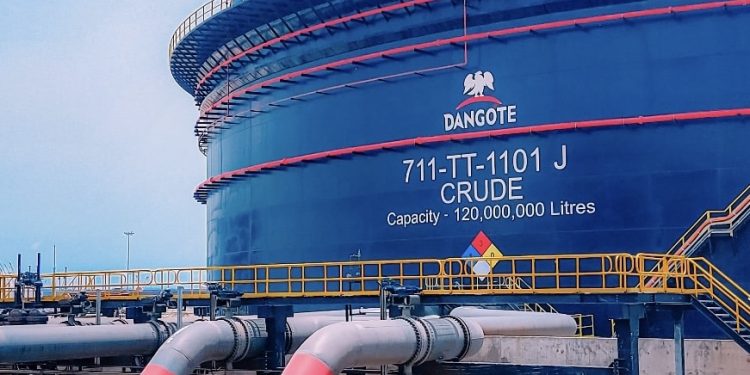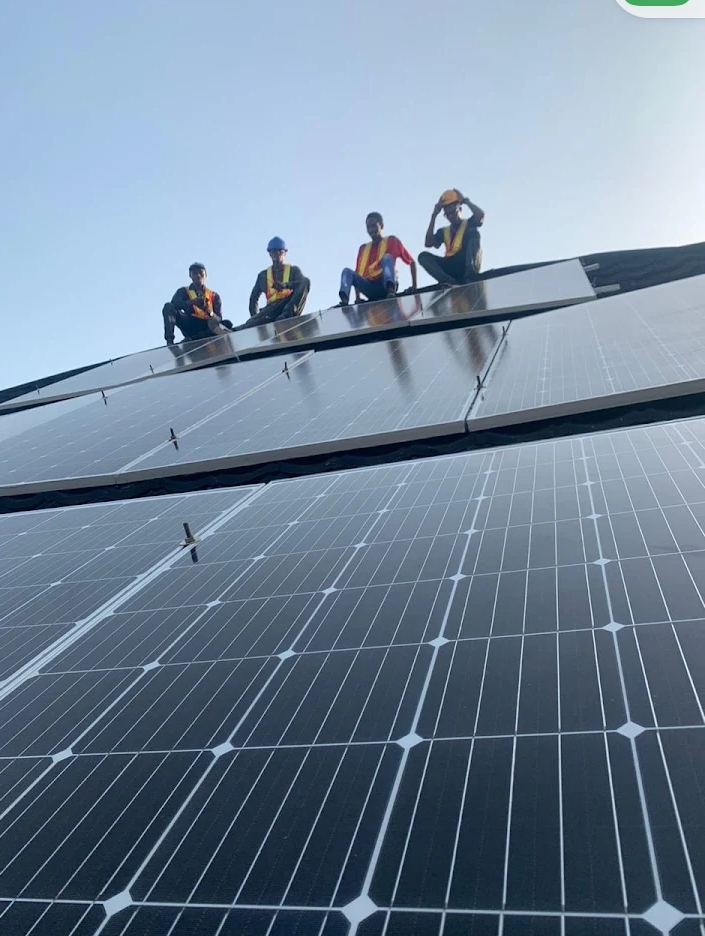
The Dangote Refinery, an extraordinary project boasting a capacity of 650,000 barrels per day, has officially initiated the production of petrol.
This development signifies a major achievement in Nigeria’s energy sector, bringing the nation closer to attaining self-sufficiency in fuel production.
The proclamation was made on Tuesday by the President of Dangote Group, Aliko Dangote, during a press conference.
Addressing the journalists, Dangote expressed his pride in reaching this significant milestone, highlighting the refinery’s potential to revolutionize Nigeria’s oil industry and diminish the country’s dependence on imported fuel.
“This marks a pivotal moment for us and for Nigeria as a whole,” Dangote articulated. “The initiation of petrol production at the refinery represents a significant stride towards ensuring energy security for our nation. We are devoted to delivering top-tier petroleum products that cater to the needs of our populace and contribute to the economic advancement of the country.”
The $20 billion refinery, constructed by the billionaire industrialist Aliko Dangote, commenced operations in January of this year. Initially focusing on producing diesel and aviation fuel, both of which have already had a substantial impact on the local market, the transition to petrol production is viewed as a crucial advancement due to the high demand for gasoline in Nigeria and throughout the African continent.
Situated in the Lekki Free Trade Zone near Lagos, the Dangote Refinery stands as the largest single-train refinery globally. Its strategic location and immense production capacity are anticipated to position Nigeria as a key player in the global oil market. Moreover, the refinery is projected to generate thousands of job opportunities and stimulate economic growth in the region.
Industry experts have praised the commencement of petrol production, recognizing its potential to significantly reduce Nigeria’s reliance on imported fuel, which has been a substantial burden on the country’s foreign exchange reserves. With the refinery’s output, Nigeria is poised not only to meet its domestic fuel requirements but also potentially emerge as a net exporter of refined petroleum products.
The refinery’s operations are also predicted to result in reduced fuel prices for consumers in the long run, as local production of petrol and other petroleum products will alleviate the expenses linked to importation and transportation.
In addition to its refining capacities, the Dangote Refinery complex encompasses a cutting-edge petrochemical plant, a fertilizer plant, and a power generation facility, establishing it as a fully integrated industrial center. This integration is expected to have widespread positive impacts on Nigeria’s economy, including boosting local industries reliant on refined products and petrochemicals.
While the full implications of the refinery’s petrol production are yet to be fully realized, the news has already sparked enthusiasm among stakeholders in the energy sector. Many view it as a pivotal moment for Nigeria’s oil and gas industry, which has long grappled with inefficiencies and underutilization of resources.
As operations escalate, the Dangote Refinery is anticipated to play a pivotal role in addressing the challenges of fuel supply in Nigeria, providing a steady and dependable source of petroleum products for the nation’s expanding population.
Further details are expected to surface in the upcoming days as the refinery continues to ramp up its production endeavors.



